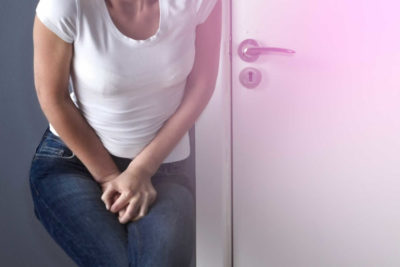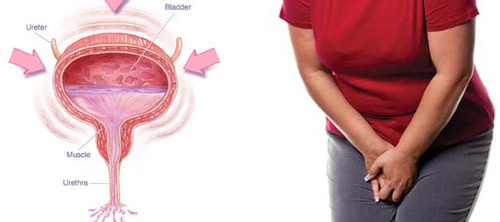Overactive bladder diagnosis and treatment are very necessary to continue your life without depression and stress.
Overactive Bladder Diagnosis
We can have the same symptoms of OAB in :
-Urinary tract infection.
-BPH.
-Bladder cancer.
-Interstitial cystitis, prostatitis.
When you have these symptoms you should visit your urologist who will:
-Ask about your symptoms and your medical history.
-Do a physical exam for your abdomen, your rectum, and the organs in your pelvis.
-Bladder Diary: The patient should note how many times he goes to the bathroom and when he leaks urine; the bladder diary helps you track: when and how much fluid you drink, when and how much you urinate in 24 hours, how often you have the urgency feeling to urinate, when and how much you leak urine.
Other Tests
-Urine test: Your doctor will require a urine analysis and urine culture to determine if there’s a urine infection.
-Bladder scan: This ultrasound imaging shows how much urine is still in the bladder after you go to the bathroom.
-If there is any doubt about the diagnosis, the urologist required a cystoscopy or urodynamic testing.
Overactive Bladder treatment
Overactive bladder can interrupt your social life, but there are ways to combat the problem.
Natural Treatment for Overactive Bladder

-Bladder training: This type of training helps the patient to control the urge of urinating; he will able to control himself.
-Pelvic floor exercises: Called Kegels exercises; you tighten, hold, and then relax the muscles that you use to start and stop the flow of urination.
Drugs for Overactive Bladder
In the overactive bladder, we have contraction of the muscles in the bladder wall at the wrong time. A group of drugs called anticholinergics help by blocking the nerve signals related to bladder muscle contractions; these medications increase bladder capacity and decrease the urge to urinate.
Anticholinergic drugs include:
Darifenacin (Enablex)
Fesoterodine (Toviaz)
Oxybutynin (Ditropan, Ditropan XL, Gelnique, Oxytrol)
Solifenacin (Vesicare)
Tolterodine (Detrol, Detrol LA)
Trospium (Sanctura)
These drugs have several side effects:
-dry eyes
-dry mouth
-Constipation
To relieve dry mouth it is necessary to drink small amounts of water (because large amounts can worsen the symptoms of the overactive bladder) and suck a sugar-free candy; the doctor will recommend eye drops to relieve dry eyes and a diet rich in fiber for constipation.
Bladder injections
OnabotulinumtoxinA, also called Botox, is a protein injected in small doses directly into the bladder to relax the muscles. The effect of this protein lasts for 6 months so repeated injections are necessary.
Side effects of Botox injection: urinary tract infections and urinary retention.
Nerve stimulation
Helps to treat an overactive bladder by adjusting nerve messages from the brain to the bladder.
We have 2 types of nerve stimulation:
-Sacral nerve stimulation (SNS)
-Percutaneous tibial nerve stimulation (PTNS)
Follow the link for more information about nerve stimulation.
Surgery
Surgery is required for people with severe symptoms who don’t respond to other treatments.
We have 2 types of surgeries:
-Surgery to increase bladder capacity by using pieces of your bowel to replace a portion of your bladder. This surgery is required only in cases of severe urge incontinence that doesn’t respond to any other treatment.
-Bladder removal: This procedure is the last solution of severe overactive bladder and consists of removing the bladder and surgically constructing a replacement bladder (neobladder) or an opening in the body to attach a bag on the skin to collect urine.
Some TIPS to prevent an overactive bladder
-Maintain a healthy weight.
-Do physical activities and exercises.
-Reduce your consumption of caffeine and alcohol.
-Stop smoking: smoking is irritating to the bladder muscle.
-Treat your chronic conditions, such as diabetes, that might lead to overactive bladder symptoms.
-Do Kegel exercises for the pelvic muscles.

